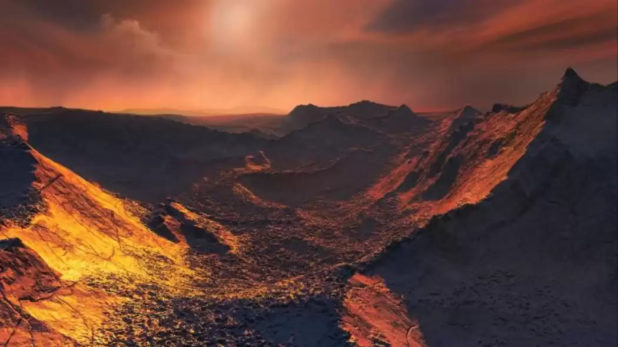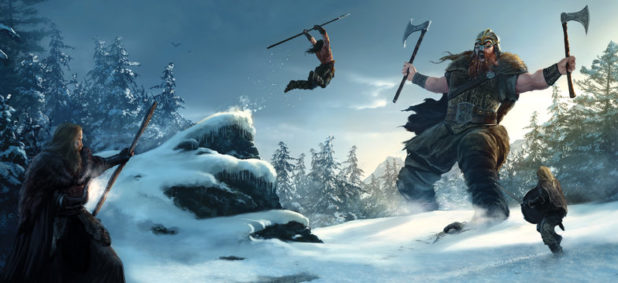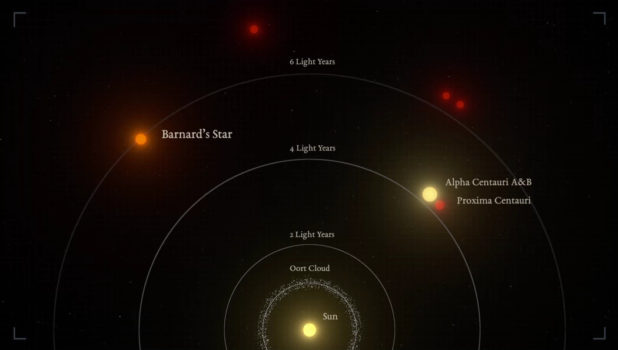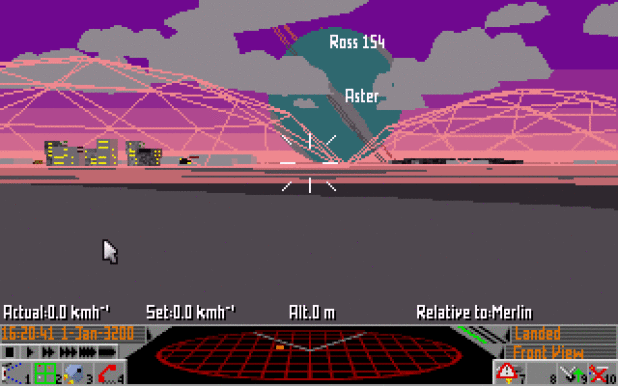Adrian Sol
Daily Stormer
November 16, 2018
Looks like a perfect spot for a SPACE FORCE base, doesn’t it?
Scientists have confirmed that we’ve got a plump, juicy planet ready for the picking just 6 light-years away. In other words, while we’re out here wasting our time dealing with these Jews and debating whether to build a space force or not, a nearby planet remains uncolonized.
What if aliens decide to just steal it from us while we’re screwing around?
Worse, what if the planet already has life, and in the time it takes us to deal with the Jews and build up our space fleet, they actually develop weapons to prevent our attack?
This new planet belongs to us. If we don’t get a move on, it might slip out of our grasp forever.
Scientists have discovered a “Super-Earth” orbiting Barnard’s Star, a red dwarf located just six light years from our solar system.
The exoplanet, called Barnard’s Star b, is the closest world to Earth ever detected in a single star system, and the second closest of all known exoplanets after Proxima b, an Earth-scale world located four light years away in the triple-star Alpha Centauri system. It is at least 3.2 times as massive as Earth and has a year of 233 days and an estimated surface temperature of around -170°C (-274°F).
So it’s a bit chilly.
Well, White people are the men of the snow – we can deal with cooler temperatures.
Scientists have not yet confirmed if the planet is host to frost giants as well. Presumably it is.
This sounds like the perfect challenge Whites need to toughen us up again.
This major discovery is the culmination of an international partnership led by Ignasi Ribas, a stellar astrophysicist at the Institute of Space Studies of Catalonia. The team analyzed 20 years of observations catalogued by seven astronomical instruments, and published the results on Wednesday in Nature.
“This discovery means a boost to continue searching for exoplanets around our closest stellar neighbours, in the hope that eventually we will come upon one that has the right conditions to host life,” study co-author Cristina Rodríguez-López, a researcher at the Institute of Astrophysics of Andalusia, said in a statement.
Barnard’s Star has been an object of intense astronomical interest for a century due to its proximity to Earth, fast motion through our skies, and advanced age of seven to 12 billion years. Red dwarfs often produce violent flares that could render life on their planets improbable, but Barnard’s Star is relatively inactive and stable (though it does still flare sometimes). All these characteristics have distinguished the system as a candidate for potential habitable environments in our local cosmic neighborhood.
It’s basically in our backyard.
The most notable aspect of Barnard’s Star is that we all have fond memories of using it as our starting location in Frontier: Elite as children.
Only 90s kids will get this reference.
Wary of past false detections of exoplanets around Barnard’s Star, Ribas and his colleagues bolstered their research with 771 measurements sourced from specialized tools such as the CARMENES spectrometer in Spain, the ESO/HARPS instrument in Chile, and the HIRES instrument on the Keck telescope in Hawaii.
This glut of data revealed shifts in Barnard’s Star’s radial velocity, meaning that the red dwarf was slightly wobbling as if an orbiting object was gravitationally tugging at it. The researchers concluded that it was overwhelmingly likely that these shifts were caused by a Super-Earth, but hope to get more information from other observatories to corroborate the discovery.
“After a very careful analysis, we are 99 percent confident that the planet is there,” Ribas said in a statement. “However, we’ll continue to observe this fast-moving star to exclude possible, but improbable, natural variations of the stellar brightness, which could masquerade as a planet.”
It’s time for the space force to expand beyond mere talk.
The frost giants from Barnard’s Star are a clear and present danger, and they’re probably working on building space ships as we speak.
More importantly, they’re squatting on our clay.
Time to get serious, people.





